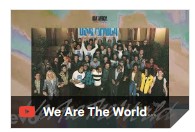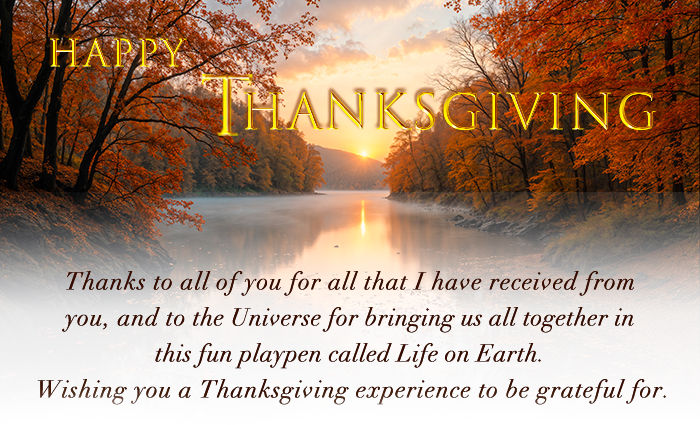Powerful Mind Part 41
Welcome to this week’s Bill Harvey Blog. December 19, 2025
Created December 22, 2023
Read Powerful Mind 40 | See all 12 Powerful Mind Keys

Who are you, really? You probably play many roles in life, and try to live up to what others expect of you in each role. Your body language now moves by itself without you even noticing it, but each move was pressed into you like a piece of movable type impressing into clay, by your subconscious emulation of your role models.
My unofficially adopted older brother, Bill Heyer opined that my book Mind Magic might be retitled Really See Yourself. He was talking about your real self underneath those acquired roles and conditioned habits.
The movement in psychotherapy today to consider the inclusion of psychedelics in treatment – which goes back to antiquity and is related more to rites of passage than to treatment of mental diseases – reflects the common experience of those who have seriously experimented with LSD, psilocybin and other mind-altering chemicals of suddenly being able to see themselves, their imitative robotic selves and the true experiencer self under the layers of conditioning. This is generally a life-altering experience, and it is for the better, for minds that have been strengthened enough to withstand the extreme disorientation and to be able to integrate it into a constructive total picture of reality.
This degree of self-realization does not however, require drugs; putting the 12 Keys into practice will take you to the same place in a more gradual way.
In your day-to-day life, you have seen yourself on some occasions as having a lot to offer the world, and at other times you may have seen yourself as worthless, but these mood swings are part of the package, not evidence of what your true value is. Your true value in my estimation of reality far exceeds your most grandiose views of yourself. Because my best guess is that deep down inside each of us is an avatar of the universe itself, what the human race has always called God.
In my theory summarized in A Theory of Everything Including Consciousness and “God,” all that exists is a single consciousness at play, a single Experiencer that multiplies itself in order to behold and interact with itself from many viewpoints.
Those philosophers who accept the idea of the universe possibly being conscious but reject the idea that this consciousness is benevolent, base their position on the existence of suffering. They conclude that the existence of suffering proves that there cannot be a loving God. My fiction series Agents of Cosmic Intelligence is designed to demonstrate one of many scenarios in which there can be a benevolent conscious universe and suffering can exist in that universe as a learning experience resulting from enabling eternal avatars to have free will. It is we, the avatars, who cause the suffering by errors we make from which we learn more and more, lifetime after lifetime.
You may be an avatar of the universe. My theory may be wrong. Nothing of this is scientifically provable yet. However, if you open your mind to all possibilities, you can gather evidence through your own experience. If you do not foreclose the possibility, you may hear in your mind “advice” that appears to be coming from wisdom you yourself didn’t know you possessed, and which works spectacularly well in the real world. This may come in the form of words or of a wordless hunch that comes true. When you are not blocking these possibilities by arbitrary or conditioned fixed-position skepticism, you might be surprised to notice how often you get these accurate intuitions. Jung included intuition as one of the four functions of consciousness, along with perceptions/memories, thinking, and feeling.
Intuitions can be explained without necessarily invoking extrasensory perception. For example, the totality of experiences stored in memory might be the source of these hunches we cannot explain, which we name as subconscious processing.
Many of us succeed in opening our minds to all possibilities to a degree that enables us to experience unusual and often useful events, such as knowing before picking up the phone whom the call is coming from, what someone is about to say, why one friend always flinches when you lift your right arm expressively, where a particular industry will be in a few years, exactly what to say to relieve a person who is torturing himself or herself, and to see through fakery. And much more.
All you truly are is probably so much greater than what you think.
Ego wants to believe that but for the wrong reasons. Ego is essentially a defensive system, what Hobbes was talking about when he described how we will pick fights with people out of fear. Ego is the operating system of the biological AI inside our brains and nerve networks. In higher states of consciousness, when one perceives Oneness directly, feeling at one with the universe and loving everything and everybody while retaining realistic understanding of weaknesses in others, which render them not to be trusted in the present moment, the ego has been bypassed, and the conscious mind is focused on itself.
Empiricism has devolved in current practice into measuring the things we can measure with instruments. Its original meaning was to observe what actually happens in reality, and that includes within one’s own psyche. William James was among the last of the great psychologists to employ introspection as a methodology, and more recently, Maslow and Csikszentmihalyi brilliantly drew upon introspection as a supplement to the observation of behaviors. Introspection helps explain behavior. You can use that yourself. If you do something that you yourself cannot explain why you did it, introspection can ultimately reveal why some part of you, perhaps ego attachments, perhaps Emergency Oversimplification Procedure (EOP), caused you to do it.
The civilization culture we take for granted has dwarfed our concept of ourselves. Acceleritis is the word I coined to describe how information overload has forced us into EOP and to call attention to the fact that it is all still accelerating, that unless we learn the trick of really seeing ourselves and everything else without conditioned filtration, we are going to be more gnomish in the future than we are today. We can see evidence all around us of civilization on the brink of falling apart, people becoming more distrustful of one another and more pessimistic, creating a self-fulfilling prophecy of doom that we will live out if we don’t take charge of our own consciousness now.
We used to have a mythos that awed and inspired us, and many of us still retain a fragment of that in religion or inclusive idealism. We recommend keeping an open mind about anything being possible unless and until it is proven otherwise by multiple replications of the scientific method. That open-mindedness allows awe and wonder to coexist with logic and reason. Until we know for sure what the universe is and what consciousness is, based on science as proven as quantum physics and relativity, we make our decisions day to day based on not knowing if we are an avatar of the universe whose consciousness shall live forever, or an animal that will die permanently, we have to make those moment to moment decisions to be optimal in the context of both possibilities.
In that existential situation, it is not unreasonable to talk to God in your own mind if you feel like it. The conscious universe of which you are a part is a real possibility; no law of existing science precludes it. Many respected scientists take a premature stand against anything even remotely close to God, and in our respect for them, many of us downgrade the possibility of God, although this is what a follower does by blindly and loyally following everything an authoritarian says. Take back your right to think for yourself without being swayed by what others, even brilliant scientists, think. Take back your autonomy. You can do this without invoking faith, wishful thinking, superstition, or belief, just by remembering with extreme clarity that nothing has been proven yet either way.
As Arthur C. Clarke said, “Any sufficiently advanced technology is indistinguishable from magic.” He also pointed out that what we don’t know is vast compared to what little we do know so far. Under these conditions, it is a mistake to adhere rigidly to one or the other indefensible position. At some point in your life (you might be one of the rare people lucky to have already reached this stage), your own experiences might compel you to take the position that you know that God exists, and you will make all your decisions in the context of that certainty. But there’s no need to rush it. Best to stick to empiricism, your own experience, and not foreclose any possibilities without sufficient evidence that such foreclosure will benefit you permanently.
We have embarked on Key #11. Stay open to the possibilities that you may have extrasensory perception, precognition, even the possibility that the universe is trying to help you and is sending you messages. Remove the blocks.
More to come on this.
Here’s a little video holiday present for you.

Card design and concept by Christine K. Niver. Photo by Bill Harvey of the view from his home office.
My best to all,
![]()




